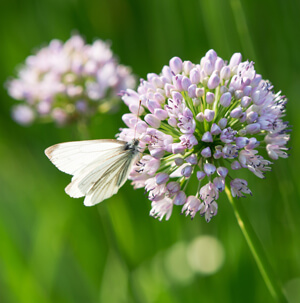Grow Your Own Tasty Garden
 Love Fresh Vegetables and Herbs?
Love Fresh Vegetables and Herbs?
There are many ways to successfully grow your very own Tasty Garden. You can grow your garden outside in the ground, in raised vegetable garden beds, or you may choose to grow a container vegetable garden on your balcony or patio. While growing an indoor vegetable garden may be best suited to herbs, under the right conditions other small vegetables may also be grown indoors.
The Benefits of Planting an Edible Garden
You know what you’re growing and can grow Organic
- Enjoy food that’s fresh out of your garden!
- It only travels from your garden to your table
- It has more nutrients
- Enjoy your home-grown success!
Getting Started
- Choose your location based on sun, shade, convenience or visual emphasis
- Whether planting in the ground, creating a raised vegetable garden, or starting a container vegetable garden, you will need to make sure you have the right soil. Buy a potting soil designed for the type of garden you are growing and the area your garden will grow in. SummerWinds Nursery sells a number of ready to use soils, or you can amend existing poor soil in preparation for planting.
Soil Preparation

- Apply a layer of organic matter 2 to 3 inches think in the garden area
- Work it into the top 10 to 12 inches of soil
- Before planting, apply a fertilizer that contains both nitrogen and phosphorus
- Water the fertilizer in until it settles
Planning Your Garden
Plant compatible vegetables and herbs
- Understand the growing conditions required by the plants you choose to grow
- Decide if your vegetables will do best in the ground, in a raised vegetable garden outdoors or a more versatile container vegetable garden.
- In general, place taller plants (e.g. corn, sunflowers) in the back of the garden and then work your way forward with smaller plants. Plant the taller plants in the early spring so they progressively shade other plants as they grow.
Pest Control
Pests can often be controlled through the use of companion plants or Organic solutions.
-
Companion Planting for Pest Control:
- Using companion plants naturally lowers pest problems in the garden without chemical intervention.
- Plants such as chives, garlic, onions and other select herbs produce offensive chemicals or smells that repel insects and disease.
- Ornamental onion plants, known as alliums, attract beneficial pollinators such as butterflies and bees.
- Insects such as lady bugs, praying mantis, spiders, wasps and several species of flies are beneficial to the garden. The small flowers of carrots, dill, parsley and coriander have strong fragrances that attract these beneficial insects.
-
Organic Pest Controls:
- Bacillus thuringiensis (Bt) – Bt in all its forms (products) works well on worms and caterpillars.
- Captain Jack’s Deadbug Brew™ – for prevention (and killing) of bagworms, beetles, borers, caterpillars, thrips and more.
- Neem Oil – for use on aphids, etc. Apply in spring and fall.
- Pyrethrin – for use on phids, etc. Apply in summer.
Weed Control

-
Corn Gluten: Corn gluten meal is a byproduct of corn processing that has historically been used as an animal feed. It can also be used as an organic herbicide. Timing is key.
- Pulling Weeds: Pull weeds as you see them. Don't let them get big and go to seed.
- Mulching: Use coffee grounds, coco shells and red cedar bark as mulch.
Do you already have weeds? To kill weeds, we recommend The Organic Garden Guy’s 10% Vinegar Soil Conditioner.
Timing Your Phoenix Garden

The ideal planting season for vegetables in is in the fall, particularly October. The temperatures in Phoenix during winter and spring create ideal growing conditions for most vegetables, so find a location that will provide full sun during these months: Arizona Winter Vegetables
With the intense summer heat and sun, few plants are likely to survive and watering these plants through the summer is futile. For the few plants that will survive year round, find a place that will offer some shade during the summer: Arizona Summer Vegetables
At SummerWinds Nursery our Trusted Garden Advisors can answer all of your questions about planting and maintain a successful tasty garden. Stop in today to learn how to make your vegetable garden thrive in the Arizona desert.

 You know what you’re growing and can grow Organic
You know what you’re growing and can grow Organic
 Companion Planting for Pest Control:
Companion Planting for Pest Control: 